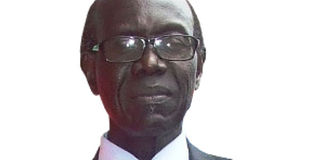Politics of donating money to fight Covid-19 pandemic in Uganda

On April 29, First Lady and minister of Education, Ms Janet Museveni, donated Shs1.4 million ($370) to the National Taskforce on Covid-19 on behalf of Sabalwanyi who had pledged half of his monthly salary to fight the coronavirus pandemic. Gen Yoweri Museveni made the pledge on April 27 during his address to the nation.
According to a story published in Daily Monitor of April 29 titled, “Museveni donates half of his monthly salary to Covid-19 fight,” Sabalwanyi responded to a question asked by a Ugandan who wondered why Ugandan public servants had not given part of their hefty salaries to fight coronavirus, as was happening elsewhere in several African countries.
He replied, “You remember you people normally pay me some little money. They pay me Shs3.6 million ($950). NRM takes about 20 per cent. On the other remaining Shs2.7 million, I will instruct Janet to sign Shs1.4 million each month to the fund. Janet is the one who receives the money. I never follow up that…”
At the end of his address to the nation, the President often reads the names of persons, companies and organisations who have donated cash or basic commodities for the worthy cause of fighting and hopefully defeating the Covid-19 pandemic.
The President’s donation has not surprisingly raised concern, doubt and dust among Ugandans as reflected in Mr Odoobo Charles Bichachi’s weekly Public Editor’s Notepad of May 1 titled, “What did Daily Monitor miss on Museveni salary donation?”
I suspect most Ugandans are surprised, if not shocked, by Sabalwanyi’s alleged Shs3.6 million salary and secondly by his paltry contribution to the taskforce because he is known to be a generous giver to many unimportant causes, let alone dubious individuals. A friend who is a keen observer of Ugandan politics calls Sabalwanyi Uganda’s donor-in-chief.
One Shawn Mubiru put it bluntly to MPL’s Public Editor and lamented thus: “The President has access to over a trillion shillings in budgeted money for his office and associated operations then you write such a story! Shame!” he wrote.
The Public Editor tried to put the presidential donation in context and argued correctly that Shs1.4 million would pay the cost of testing only six people for coronavirus. He explained that the story did not get the prominence it deserves due to the fact that the presidential address ended late, at 11pm, past the deadline for the next day’s newspapers.
A couple of days later a member of Cabinet wrote an interesting piece in exercise of the right of reply which was published in Daily Monitor of May 5. I fear ICT and National Guidance minister Judith Nabakooba’s attempt to set the record straight in her piece titled, “President’s Shs1.4 million Covid-19 donation shows he is modest” may have raised more concerns and doubts in the minds of Ugandans than put the matter to rest.
According to the Oxford Advanced Learner’s Dictionary, the word modest, inter alia, means, “not talking much about your own abilities or possessions.” Anybody who has lived in Uganda during the last 34 years and has kept his or her ears and eyes wide open would not use the word “modest” to describe Sabalwanyi’s lifestyle. If anything, conspicuous consumption is the hallmark of State House during his rule.
Sabalwanyi’s public appearances and utterances, such as at Kololo Independence Grounds on January 26, 1995, at which he called Uganda’s past leaders swine and recently at Masindi on January 26, 2017, at which he bragged publicly that he is not a servant of anybody, but a freedom fighter, to mention but a few, speak eloquently for themselves.
Minister Nabakooba claims that “Our President is a very honest and modest person and pursuit of personal riches using public resources has never been his calling.” She is entitled to her opinion. I, however, agree with her that modesty and humility are priceless virtues which all leaders, including those of Uganda, should strive to cultivate.
With all due respect, I would like to advise the minister that Ugandans may be poor, weak and toothless, but they are not fools. Make no mistake, nobody can fool all Ugandans all the time. As Scripture teaches, there is a time for everything under the sun. One day Ugandans shall rise from the ashes and shine again. May the Lord have mercy!
Mr Acemah is a political scientist and retired career diplomat.
[email protected]




